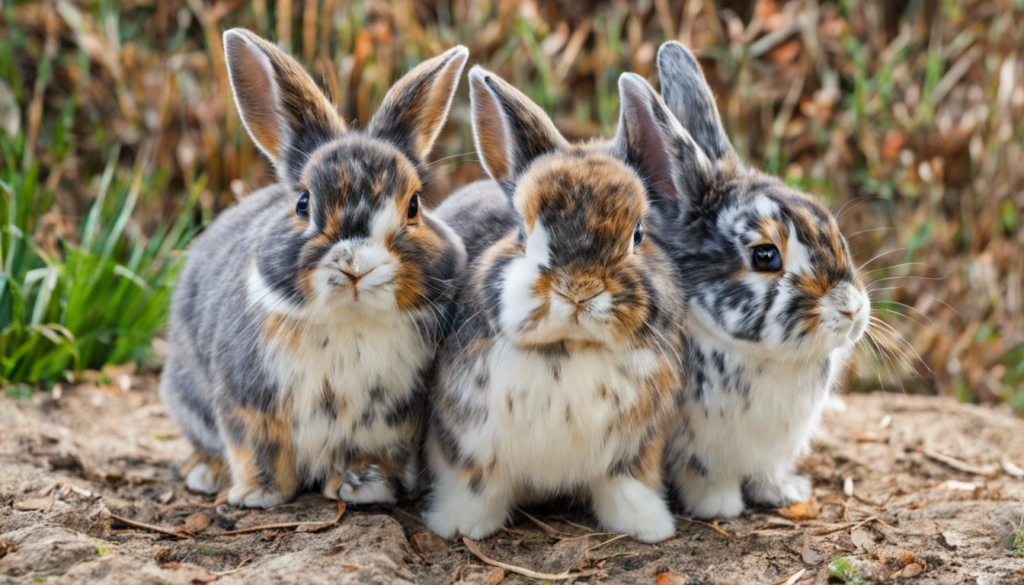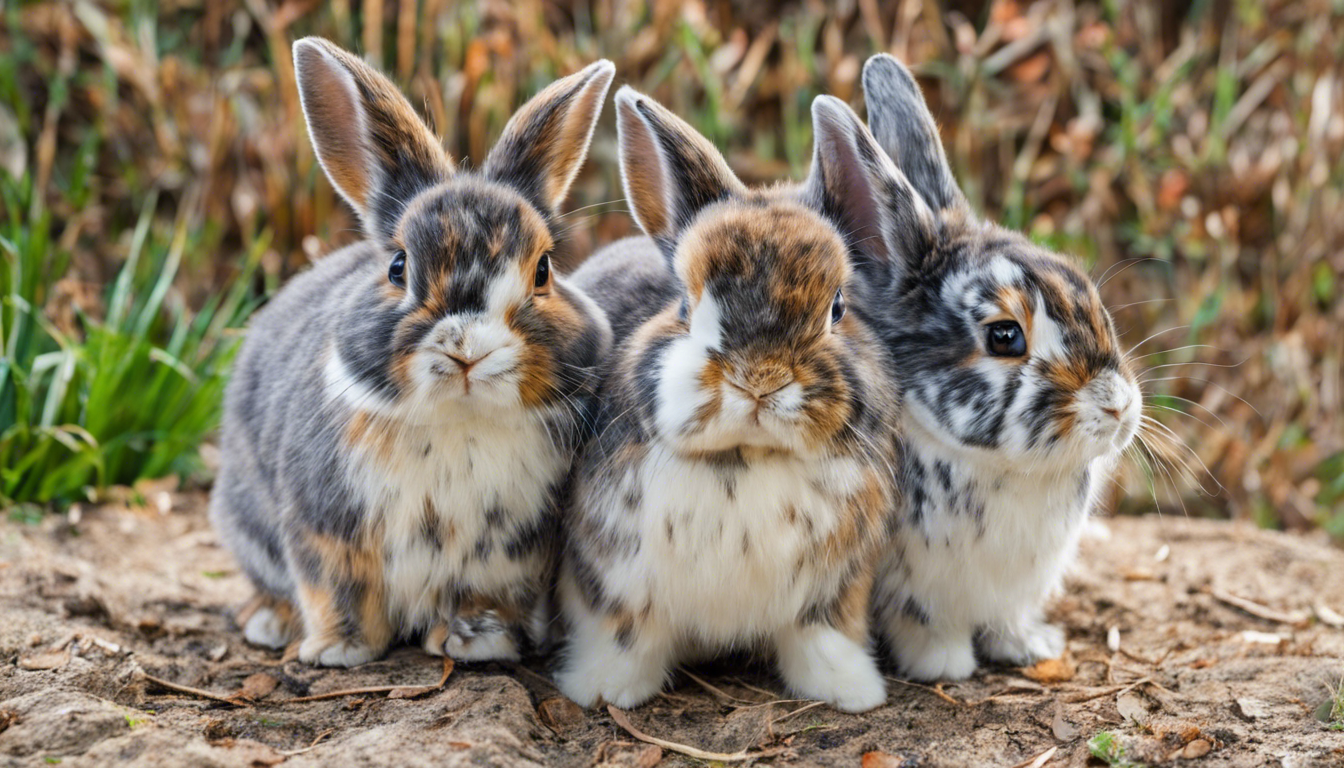Understanding the Lifespan of a Netherland Dwarf Rabbit

The Netherland Dwarf rabbit is the smallest of all rabbit breeds, weighing around 500g (1 lb). As one of the most popular pet rabbits, these adorable furry companions have captured the hearts of many with their cute appearance and friendly personalities.
These tiny rabbits, called Netherland Dwarf rabbits, have a relatively long lifespan compared to their diminutive size, making them excellent long-term companions for responsible owners.

Physical Traits and Appearance
The Netherland Dwarf rabbit is a true dwarf breed, meaning they carry the dwarf gene. They have a compact body, large head, short face, short ears, and large eyes, giving them an overall impression of a young rabbit, regardless of their actual age. Their fur is of normal length and slowly returns to position after being brushed.
The breed standard calls for the following physical traits.
- Short, compact body
- Short and upright rounded ears
- Round, large head
Netherland Dwarfs come in over 20 recognized colors, classified into five groups:
- Self (solid colors like black, blue, chocolate, lilac)
- Shaded (BEW, REW, sable point, Siamese sable, Siamese smoke pearl)
- Agouti (tortoiseshell, chestnut, chinchilla, lynx, opal, squirrel)
- Tan (otter, sable marten, smoke pearl marten)
- Any other variety (fawn, Himalayan, orange, steel)
Despite their small size, weighing only about 2.5 pounds, Netherland Dwarfs have a short, soft fur coat that requires weekly grooming to maintain their appearance. Common health issues in the breed include malocclusion (misaligned teeth) and fragile bones due to selective breeding.
Lifespan and Longevity
The Netherland Dwarf rabbit has a relatively long lifespan compared to other rabbit breeds, typically ranging from 7 to 10 years. Some sources even suggest that these tiny rabbits can live up to 12 years with proper care and handling.
Several factors can influence the lifespan of a Netherland Dwarf rabbit:
- Size: Being a dwarf breed, their smaller size may contribute to their longevity.
- Diet: A balanced and nutritious diet is crucial for their overall health and lifespan.
- Health Conditions: Netherland Dwarfs are prone to certain health issues, including respiratory tract disorders, dental disease, parasites, gastrointestinal disorders, and uterine cancer. Proper veterinary care and preventive measures can help mitigate these conditions and prolong their lifespan.
- Genetics: Like other animals, genetics play a role in determining the lifespan of individual Netherland Dwarfs.
- Care and Handling: Providing a safe and nurturing environment, regular exercise, mental stimulation, companionship, and grooming can significantly contribute to their longevity.
To illustrate, a Netherland Dwarf named ‘Minibun’ has lived up to 8 years, demonstrating the potential for these rabbits to reach their expected lifespan of 10-12 years with proper care. Additionally, due to their flatter facial structure, Netherland Dwarfs may be more prone to dental issues like malocclusion and molar spurs, making regular dental care essential for their well-being and longevity.
Must Read : Finding the Best Breed of Rabbit for First-Time Owners
Personality and Behavior
Netherland Dwarf rabbits are often described as sassy, super active, and feisty, but these are generalizations as personality can vary widely even within the same breed. They tend to be more active than larger rabbit breeds, but there are both active and lazy rabbits in every breed. Netherland Dwarfs can absolutely be social, friendly, and cuddly, and their “sassy” personality does not necessarily mean they are mean or aggressive.
The breeder’s focus on temperament is the most important factor in determining a Netherland Dwarf’s personality. Breeders who prioritize temperament over generations will produce calmer, friendlier rabbits. Early socialization by the breeder and continued socialization by the new owner also play a key role in a Netherland Dwarf’s temperament and behavior.
Training and patience are required when bonding with a new Netherland Dwarf, as they may have challenges like:
- Litter box training
- Handling
- Chewing at first
Despite their cuddly appearance, Netherland Dwarfs have a slightly wild disposition and dislike being picked up, so it may take time for them to become tame and trusting. They are known to be trainable, quiet, and clean, but require time and effort to bond with their owners.
| Personality Trait | Description |
|---|---|
| Sensitive Digestive System | Netherland Dwarf Rabbits have a sensitive digestive system and require a diet of high-quality rabbit pellets, supplemented with vegetables, fruits, and hay. |
| Exercise Needs | They are energetic and playful, but also require a lot of exercise, needing a playpen or enclosed space to run around freely. They need to run about 3 miles per day in the wild. |
| Social Nature | It is recommended to get a second Netherland Dwarf Rabbit as they are social animals that enjoy living with other rabbits. Keeping them in pairs or groups is recommended. |
| Suitability as Pets | Netherland Dwarfs can make excellent pets for adults, but may not be suitable for young children due to their small size, fragile nature, and potential for nipping. |
netherland dwarf rabbits have a slightly wild disposition and can be shy or nervous at first, but can become calmer and tamer with proper socialization.
Conclusion
The Netherland Dwarf rabbit is a delightful and unique companion pet, offering a rewarding experience for responsible owners. Despite its diminutive size, this breed boasts a relatively long lifespan, typically ranging from 7 to 12 years with proper care. By providing a nutritious diet, regular veterinary check-ups, a safe and stimulating environment, and ample socialization, owners can ensure their furry friends thrive and live out their full potential.
While Netherland Dwarfs may initially appear shy or feisty, their friendly and social nature shines through with patience and understanding from their human companions. With their charming personalities, curious dispositions, and endearing antics, these tiny rabbits have a way of capturing hearts and bringing joy to their owners. Embracing the unique characteristics and needs of the Netherland Dwarf rabbit breed can lead to a fulfilling and long-lasting bond between pet and owner.
FAQs
How Long Can Netherland Dwarf Rabbits Live as Pets?
Netherland Dwarf rabbits typically have a lifespan of 7 to 10 years. Although they may look cuddly, they naturally have a somewhat wild nature and usually do not enjoy being picked up.
What Common Health Issues Affect Netherland Dwarfs?
Netherland Dwarfs often face respiratory problems due to their brachycephalic (short-faced) breed characteristics. Their compact facial structure and small nose make it difficult for them to breathe properly, hindering their ability to get enough oxygen to their body’s tissues.
Are Netherland Dwarf Rabbits Fond of Being Held?
Generally, Netherland Dwarf rabbits are not keen on being picked up or held. They tend to react by biting or scratching when scared. This behavior is risky not only for the person holding them but also for the rabbits themselves, as their delicate bones can easily be injured if they fall or try to escape from being held.
What Makes Netherland Dwarf Rabbits Unique?
Netherland Dwarf rabbits are recognized for being a true dwarf breed, carrying the dwarf gene that gives them their distinctive appearance. They are characterized by their compact bodies, large heads, short faces, short ears, and big eyes, which gives them a perpetual youthful look regardless of their age. Their short, upright ears set on a large head are particularly notable.
What do you think?
Show comments / Leave a comment